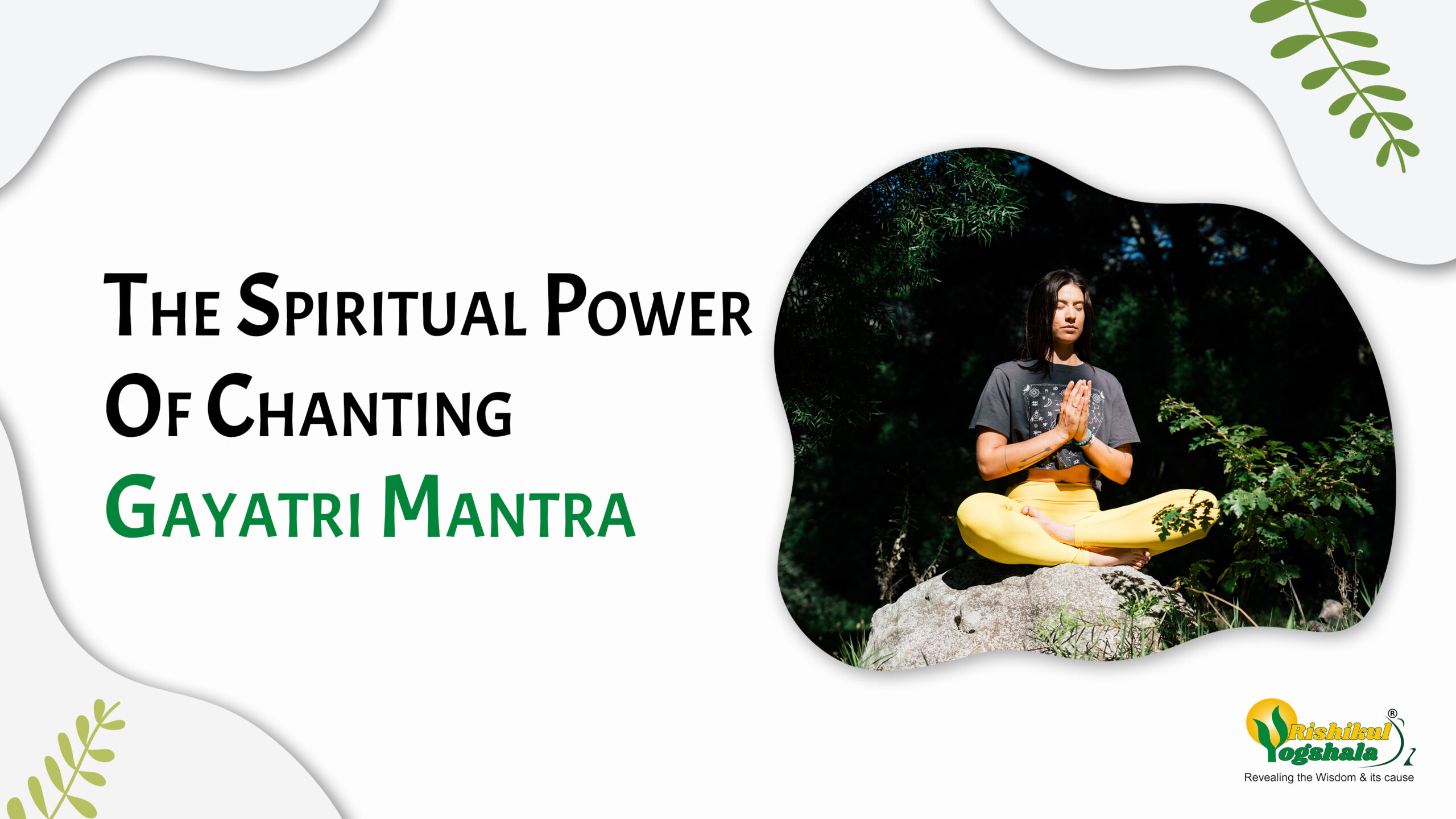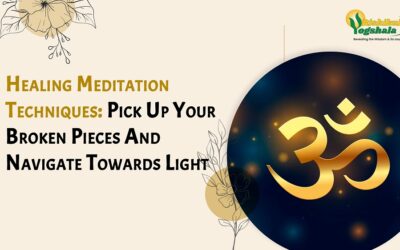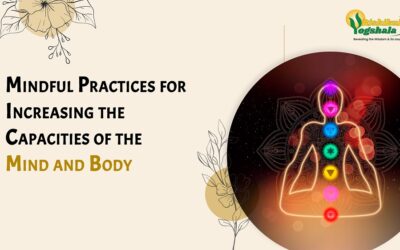Table of Contents
Have you ever experienced a moment of such profound stillness that you can even feel the gentle rhythm of your own heartbeats? Have you ever lost track of your time and surroundings while doing something you enjoy? Have you ever taken a moment to truly relish the taste of your favorite food?
If you’ve experienced this, Welcome to the headspace called Meditation.
When you step into a mind space where everything is quiet and all your senses are focused on just one thing, you enter the realm of mindfulness, and before you know it, you are meditating.
Practicing Mindfulness
Meditation and mindfulness are linked to each other, with the difference being that mindfulness involves a thought process while meditation is a practice.
Our subconscious mind, which is usually a stirred-up place filled with infinite perceptions, strongly influences our thoughts and actions creating an illusion of the world that deviates far from the reality of life. Sometimes, the noises of our minds become so loud that we can’t differentiate between what is actual and what is not.
Practicing mindfulness escapes us from these delusions by quieting our minds and creating a serene environment that allows us to pause, think, and gain consciousness of our actual surroundings.
Here are 5 Steps To Gain Mindfulness Through Meditation
1. Find a Quiet Space
Sit in a peaceful place where you can enter into a mind space. Make sure you are comfortable so you don’t get distracted while meditating. Look for adjustment in clothing and position that serves you best.
2. Set an alarm
It is entirely optional, but you can take the help of a timer for meditation. Meditation is a soothing experience that may drift you into a tranquil atmosphere, causing you to lose track of time and meditate longer than needed.
It is great, however, if this is what you desire. But if you are short on time and need a quick relaxation, prefer setting an alarm. It will help you avoid rushing, allowing you to enjoy meditation without constantly worrying about the passing time.
3. Relax your body
As you get settled, align your body straight with whichever position you choose, and begin to breathe deeply. Inhale deeply and with each exhale, release tension from your body and feel yourself in a calming mind space.
4. Focus On One Thing
Begin to focus on just one thing. It could be your breathing, the sound of birds, or sensations in your body.
While there are various types of meditation practices available but for a beginner, you can try these simple meditation exercises:
Mindful Breathing
Breathe deeply and feel the coolness of the air as it enters your nostrils, and your lungs expands with each long inhale. Hear an oceanic sound as you exhale an audible breath. Become aware of your breathing pattern and how it influences your physical and mental state.
Body Scan Meditation
As you breathe deeply, bring your awareness to each part of your body, noticing any tension or tightness, releasing it one by one with each long exhale. Imagine a soothing white light entering the crown of your head, slowly flowing through your eyes, nose, lips, neck, shoulders, arms, fingertips, heart, stomach, thighs, and all the way down to your toes. Visualize the light radiating outwards, enveloping your entire body and bringing deep relaxation.
Body scan meditation allows you to bring awareness to your body, one area at a time. You may notice certain areas in your body you never paid attention to. This newfound consciousness will increase mindfulness and intention in everything you do.
Morning Meditation
Before your to-do list gets your attention, throwing you into a fast-paced loop of doing one task and then the other, give yourself some time for a morning meditation session. Starting your day by focusing on your breath and body will help you ground down and function better as you multitask with a calm mindset.
Guided Meditation
Are you someone who can’t bring your mind to focus no matter how hard you try? How about giving guided meditation a go? A meditation guided by a voice will help you regain your focus each time your mind begins to wander. The soothing sound accompanied by the meditation helps immerse you in a mind space free from distractions.
5. The Wandering Mind
When you try to focus on a single thing, you may find it hard sometimes because of various wandering thoughts entering your mind. It is entirely natural to experience these thoughts, so you need not worry. Simply observe these thoughts without any judgment and allow them to pass. Don’t consume yourself in the spiral of thinking. Let your mind be free.
Benefits of Mindfulness Meditation
It is essential to take a break at times. It immensely affects the way you behave. Just a mindful moment or two can rejuvenate you altogether, transforming you in several ways.
- Emotional Intelligence: Giving your thinking mind a break and calmly reflecting on your racing thoughts invites perspective, understanding, and eventually empathy and compassion within you.
- Sharp Mind: Trying to maintain your focus on a single thing enhances focus, improves memory, and increases attention span, creating a sharper mind.
- Self-Control: When you allow your thoughts to leave and not get swayed by the emotions they cause, you build resilience and self-control.
- Lowers Stress Levels: As you bring awareness to your breath and your body, leading it to relaxation, your nerves soothe, and a sense of peace flows within you, decreasing stress and relieving anxiety.
- Enhanced Sleep: When the body calms down, and your brain gets relaxed and free from any stimulation, you are better prepared for a good sound sleep.
- Heightened Energy and Productivity: When your body feels relaxed and all the burden and anxiety lifts, you naturally feel a surge of energy within you to get going and work with greater vigor, eventually improving productivity and refined quality of living.
An Expression Of Mindfulness, A Meditation For Anxiety
A meditation imbued with mindfulness is capable of drawing us out from the darkness of our subconscious mind, bringing in a bright light of a newfound consciousness, a fresh way of thinking and living, with an awareness of the present moment.
However, you don’t necessarily need to meditate to gain mindfulness. Mindfulness can be found even in the most mediocre things in our daily lives. You can find it in actions as simple as – bathing, savoring your food or drink, doing the dishes, exercising, or doing Yoga.
Feeling anxious or too frustrated with the chaos in your head? We have an idea! Just count to 5, 4, 3, 2, 1…
Confused?
Let us add clarity to it and bring you back to the present. Just follow these steps.
- Observe 5 things you can see
- Feel 4 things you can touch
- Listen to 3 things you can hear
- Notice 2 things you can smell
- Savor 1 thing you can taste
Notice how you feel. Did your mind clear up? Do you feel better and relaxed?
Conclusion
Mindfulness Meditation is a journey inward. It makes you acknowledge and appreciate the beautiful world existing around you. Whenever you find yourself stuck or too frustrated with the never-ending noises, bring your attention back to your breath, allow yourself to relax, and feel the sensations and activities happening around you, and you will be alright.
Do you know meditation is an art, and you can master it? We at Rishikul Yogshala provide a brilliant Specialised Yoga and Meditation Teacher Training Course in Kerala that will make you a mindfulness professional! Want to dive in but are unsure? Feel free to connect with us regarding any queries on WhatsApp or give us a call at +91 8433225327.




